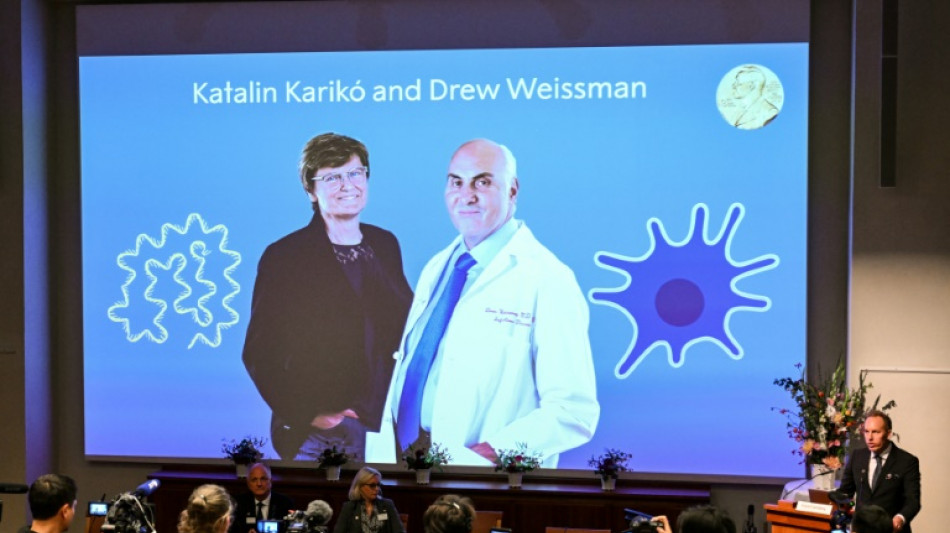
-
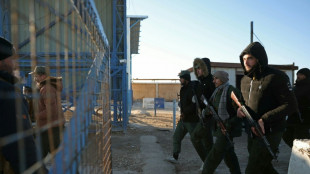 Syria army enters Al-Hol camp holding relatives of jihadists: AFP
Syria army enters Al-Hol camp holding relatives of jihadists: AFP
-
Brook apologises, admits nightclub fracas 'not the right thing to do'
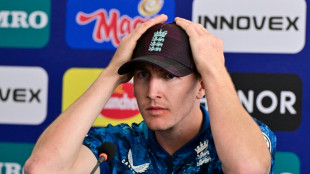
-
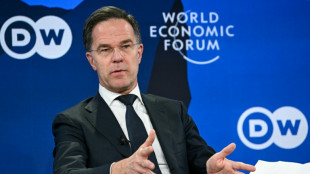 NATO chief says 'thoughtful diplomacy' only way to deal with Greenland crisis
NATO chief says 'thoughtful diplomacy' only way to deal with Greenland crisis
-
Widow of Iran's last shah says 'no turning back' after protests
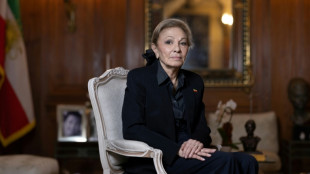
-
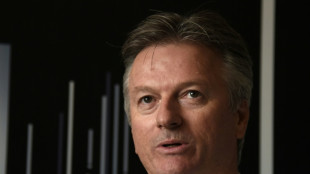 Waugh targets cricket's 'last great frontier' with European T20 venture
Waugh targets cricket's 'last great frontier' with European T20 venture
-
Burberry sales rise as China demand improves
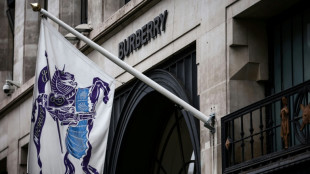
-
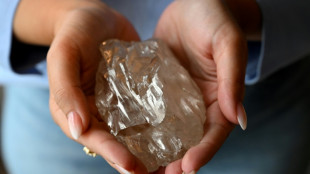 Botswana warns diamond oversupply to hit growth
Botswana warns diamond oversupply to hit growth
-
Spaniard condemns 'ignorant drunks' after Melbourne confrontation
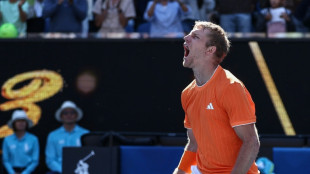
-
 Philippines to end short-lived ban on Musk's Grok chatbot
Philippines to end short-lived ban on Musk's Grok chatbot
-
Police smash European synthetic drug ring in 'largest-ever' op
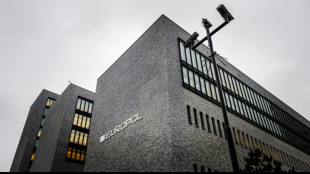
-
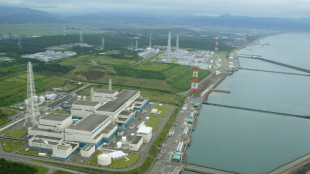 Japan to restart world's biggest nuclear plant Wednesday
Japan to restart world's biggest nuclear plant Wednesday
-
South Korean ex-PM Han gets 23 years jail for martial law role
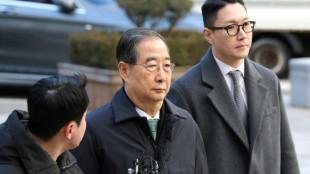
-
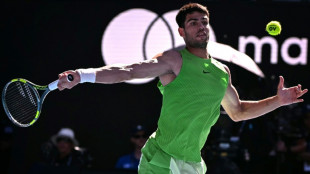 Alcaraz, Sabalenka, Gauff surge into Australian Open third round
Alcaraz, Sabalenka, Gauff surge into Australian Open third round
-
Over 1,400 Indonesians left Cambodian scam groups in five days: embassy
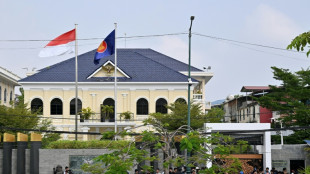
-
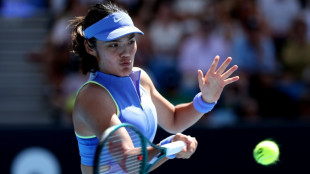 Raducanu to 're-evaluate' after flat Australian Open exit
Raducanu to 're-evaluate' after flat Australian Open exit
-
Doncic triple-double leads Lakers comeback over Nuggets, Rockets down Spurs
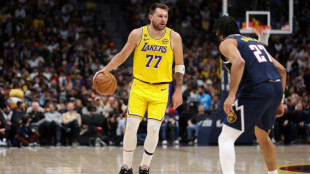
-
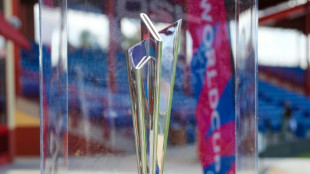 Bangladesh will not back down to 'coercion' in India T20 World Cup row
Bangladesh will not back down to 'coercion' in India T20 World Cup row
-
Alcaraz comes good after shaky start to make Australian Open third round
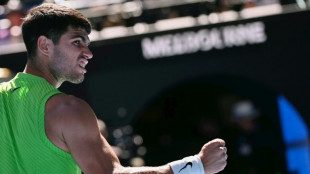
-
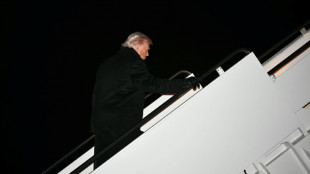 Trump departs for Davos forum again after switching to new plane: AFP
Trump departs for Davos forum again after switching to new plane: AFP
-
Impressive Gauff storms into Australian Open third round
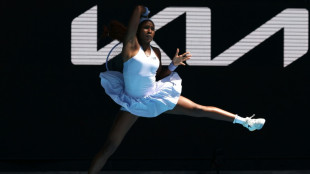
-
 Dazzling Chinese AI debuts mask growing pains
Dazzling Chinese AI debuts mask growing pains
-
Medvedev battles into Melbourne third round after early scare
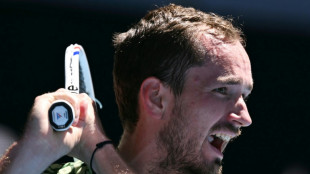
-
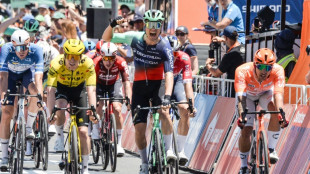 Denmark's Andresen upstages sprint stars to take Tour Down Under opener
Denmark's Andresen upstages sprint stars to take Tour Down Under opener
-
Turkey's Sonmez soaks in acclaim on historic Melbourne run
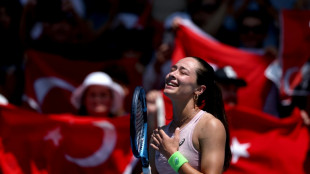
-
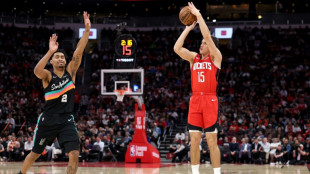 Sheppard leads Rockets to sink Spurs in Texas derby
Sheppard leads Rockets to sink Spurs in Texas derby
-
Sabalenka shuts down political talk after Ukrainian's ban call
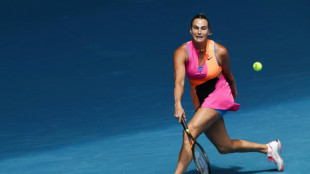
-
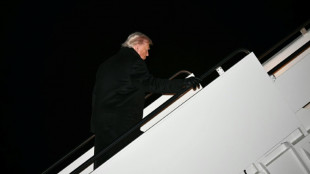 Trump's plane returns to air base after 'minor' electrical issue: White House
Trump's plane returns to air base after 'minor' electrical issue: White House
-
Barcelona train crash kills 1 in Spain's second deadly rail accident in days
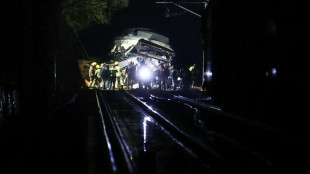
-
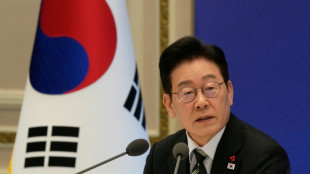 North produces enough nuclear material a year for 10-20 weapons: S. Korea president
North produces enough nuclear material a year for 10-20 weapons: S. Korea president
-
Japan ex-PM Abe's alleged killer faces verdict
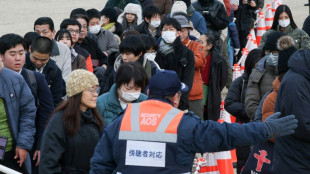
-
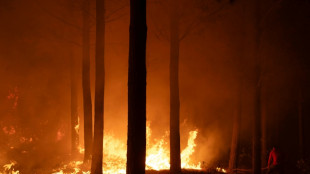 Climate change fuels disasters, but deaths don't add up
Climate change fuels disasters, but deaths don't add up
-
Stocks stable after tariff-fuelled selloff but uncertainty boosts gold
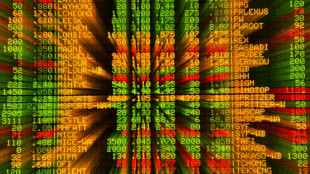
-
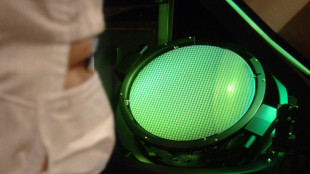 What growth?: Taiwan's traditional manufacturers miss out on export boom
What growth?: Taiwan's traditional manufacturers miss out on export boom
-
'Super-happy' Sabalenka shines as Alcaraz gets set at Australian Open
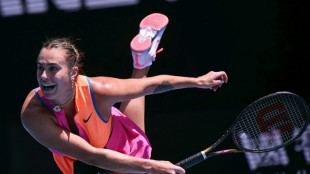
-
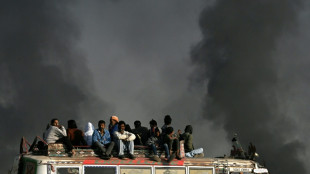 With monitors and lawsuits, Pakistanis fight for clean air
With monitors and lawsuits, Pakistanis fight for clean air
-
Sabalenka sets up potential Raducanu showdown at Australian Open
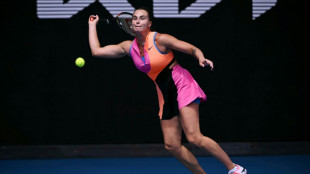
-
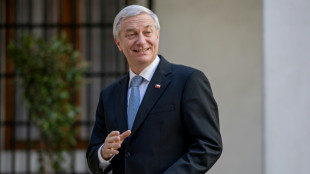 Chile president picks Pinochet lawyers as ministers of human rights, defense
Chile president picks Pinochet lawyers as ministers of human rights, defense
-
Osaka says 'I'm a little strange' after Melbourne fashion statement
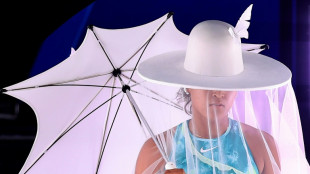
-
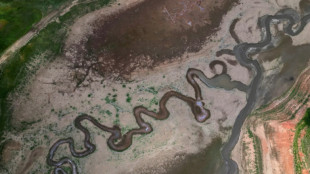 UN report declares global state of 'water bankruptcy'
UN report declares global state of 'water bankruptcy'
-
Trump heads for Davos maelstrom over Greenland
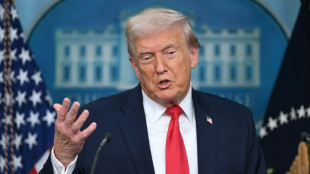
-
 Ukraine's Oliynykova wants Russian, Belarusian players banned from tennis
Ukraine's Oliynykova wants Russian, Belarusian players banned from tennis
-
Kasatkina cannot wait to be back after outpouring of Melbourne support
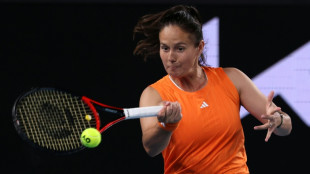
-
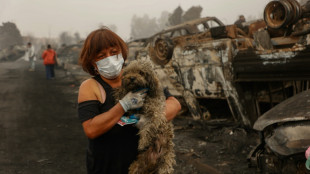 Chile blaze victims plead for help from razed neighborhoods
Chile blaze victims plead for help from razed neighborhoods
-
Russian minister visits Cuba as Trump ramps up pressure on Havana
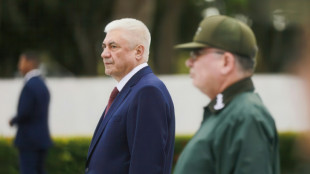
-
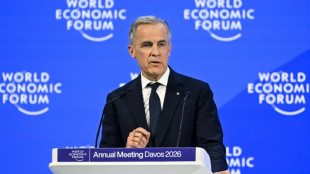 World order in 'midst of a rupture': Canada PM Carney tells Davos
World order in 'midst of a rupture': Canada PM Carney tells Davos
-
Senegal's 'historic' AFCON champs honoured with parade, presidential praise
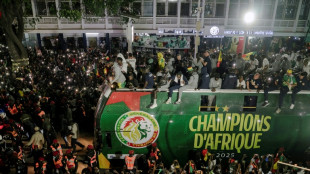
-
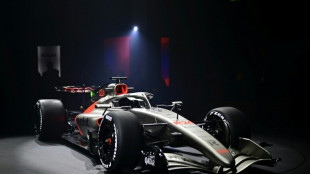 Audi unveil new car for 2026 Formula One season
Audi unveil new car for 2026 Formula One season
-
Man City humiliated, holders PSG stumble, Arsenal remain perfect

-
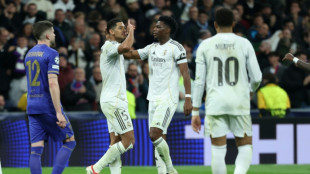 Vinicius, Real Madrid need 'love' not whistles: Bellingham
Vinicius, Real Madrid need 'love' not whistles: Bellingham
-
Late Suarez winner stops Champions League holders PSG in Lisbon
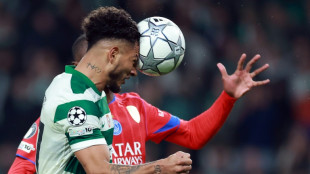

Nobel prize goes to mRNA Covid vaccine researchers
Katalin Kariko and Drew Weissman won the Nobel Medicine Prize on Monday for work on messenger RNA (mRNA) technology that paved the way for groundbreaking Covid-19 vaccines.
The pair, who had been tipped as favourites, "contributed to the unprecedented rate of vaccine development during one of the greatest threats to human health in modern times," the jury said.
The mRNA vaccines were approved for use in December 2020, and together with other Covid vaccines "have saved millions of lives and prevented severe disease in many more," the jury said.
Kariko, 68, and Weissman, 64, longstanding colleagues at the University of Pennsylvania in the US, have won a slew of awards for their research, including the prestigious Lasker Award in 2021, often seen as a precursor to the Nobel.
In honouring the duo this year, the Nobel committee in Stockholm broke with its usual practice of honouring decades-old research to ensure it stands the test of time.
While the prizewinning research dates back to 2005, the first vaccines to use the mRNA technology were those made by Pfizer/BioNTech and Moderna against Covid-19.
Unlike traditional vaccines which use weakened virus or a key piece of the virus' protein, mRNA vaccines provide the genetic molecules that tell cells what proteins to make, which simulates an infection and trains the immune system for when it encounters the real virus.
The honour is surely sweet for Kariko, who toiled in obscurity for years and struggled to convince her superiors of the need for research on "messenger ribonucleic acid".
Speaking to Swedish Radio, she said her late mother used to listen to the Nobel prize announcements in the hopes of hearing her daughter's name.
"She listened year after year. Unfortunately five years ago she passed at the age of 89. She might be listening from above."
In the 1990s, Kariko believed mRNA held the key to treating diseases where having more of the right kind of protein can help -- like repairing the brain after a stroke.
But the University of Pennsylvania, where Kariko was on track for a professorship, decided to pull the plug after the grant rejections piled up.
- Sweet comeback -
Much of the scientific community was at the time focused on using DNA to deliver gene therapy, but Kariko believed that mRNA was also promising since most diseases are not hereditary and don't need solutions that permanently alter our genetics.
First though, she had to overcome the problem of the massive inflammatory response in animal experiments, as the immune system sensed an invader and rushed to fight it.
Kariko and Weissman discovered that one of the four building blocks of the synthetic mRNA was at fault -- and they could overcome the problem by swapping it out with a modified version.
They published a paper on the breakthrough in 2005.
Then, in 2015, they found a new way to deliver mRNA into mice, using a fatty coating called "lipid nanoparticles" that prevent the mRNA from degrading, and help place it inside the right part of cells.
Both these innovations were key to the Covid-19 vaccines developed by Pfizer/BioNTech and Moderna.
Their mRNA technology is now being used to develop other treatments for diseases and illnesses such as cancer, influenza and heart failure.
The pair will receive their Nobel prize, consisting of a diploma, a gold medal and a $1 million cheque, from King Carl XVI Gustaf at a formal ceremony in Stockholm on December 10, the anniversary of the 1896 death of scientist Alfred Nobel who created the prizes in his last will and testament.
The Nobel will however not be the first gold medal in Kariko's family -- her daughter Susan Francia is a two-time time Olympic gold medalist rower.
K.Hofmann--VB



